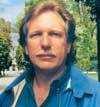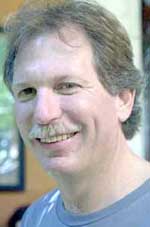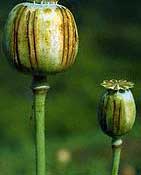Feature Archives
Thu Feb 3 2005
Sacramento Board of Supervisors Considers Medical Cannabis
February 8th Update: The Board of Supervisors decided to postpone the dialogue about medicinal marijuana in Sacramento until further information comes along. Indybay reporter Luna Moth asks that readers email the "Sac Bored of Supervisors" to give them more information about medical cannabis.
The Sacramento County Board of Supervisors met to consider an ordinance regulating medical cannabis dispensaries on Tuesday, February 8th. The ordinance would regulate locations and operation of dispensaries in the county. Time is subject to change as the agenda comes out. Text of the ordinance Read more Last year the County suspended marijuana dispensaries in the county pending recommendations from a group that was going to study medical marijuana possibilities for the county. More info
Compassionate Coalition | Safe Access Now | American Alliance for Medical Cannabis | Sacramento Americans for Safe Access
The Sacramento County Board of Supervisors met to consider an ordinance regulating medical cannabis dispensaries on Tuesday, February 8th. The ordinance would regulate locations and operation of dispensaries in the county. Time is subject to change as the agenda comes out. Text of the ordinance Read more Last year the County suspended marijuana dispensaries in the county pending recommendations from a group that was going to study medical marijuana possibilities for the county. More info
Compassionate Coalition | Safe Access Now | American Alliance for Medical Cannabis | Sacramento Americans for Safe Access
Diane Monson, who is a medical marijuana patient from Oroville, California and a plaintiff in the Raich, et al v. Ashcroft, et al case that is currently before the US Supreme Court, received a notice from the California District of Motor Vehicles earlier this month that she would have to appear at a re-examination hearing this week, or lose her
driver's license. The letter did not state why Monson had been selected; she claims that aside from a speeding ticket 15 years ago, she has had spotless driving record. Re-examination
hearings are usually held in cases involving drivers involved in
serious crashes or who have been cited for driving under the influence of
drugs or alcohol at least three times over three years.
The DMV has postponed the hearing and launched an internal investigation of the case after Monson and her lawyer hand-delivered a cease-and-desist notice to the agency's headquarters. David M. Michael, Monson's attorney, asked the DMV to declare that it would, as a policy, "not make any attempts to adversely affect the driving rights of any other California driver based solely on that driver's status as a lawful medical cannabis user pursuant to California's Compassionate Use Act." He said that the treatment of her was unconstitutional, illegal and an abuse of authority.
More about Raich v. Ashcroft
The DMV has postponed the hearing and launched an internal investigation of the case after Monson and her lawyer hand-delivered a cease-and-desist notice to the agency's headquarters. David M. Michael, Monson's attorney, asked the DMV to declare that it would, as a policy, "not make any attempts to adversely affect the driving rights of any other California driver based solely on that driver's status as a lawful medical cannabis user pursuant to California's Compassionate Use Act." He said that the treatment of her was unconstitutional, illegal and an abuse of authority.
More about Raich v. Ashcroft
Wed Dec 15 2004
Family, Friends and Colleagues Mourn Webb's Death
12/20: Gary Webb: Do What He Did by Al Giordano
12/16: Update about the memorial service
12/15/2004: A Memorial Service for Gary Webb, the late investigative journalist, will be held in Sacramento on December 18th. Webb died as a result of two gunshot wounds to the head. A coroner determined that the cause of death was suicide, largely due to the presence of a suicide note. Some wondered if Webb died of "Potential Witness Syndrome." However, his ex-wife said Tuesday that Webb had been distraught for some time over his inability to get a job at another major newspaper. 'The way he was acting it would be hard for me to believe it was anything but suicide.' Webb had reportedly paid for his own cremation earlier in the year. Apparently, he had sold his house last week, because he could no longer afford the mortgage, and was also upset that his motorcycle had been stolen. (More) Memorial Webpage for Gary Webb
12/16: Update about the memorial service
12/15/2004: A Memorial Service for Gary Webb, the late investigative journalist, will be held in Sacramento on December 18th. Webb died as a result of two gunshot wounds to the head. A coroner determined that the cause of death was suicide, largely due to the presence of a suicide note. Some wondered if Webb died of "Potential Witness Syndrome." However, his ex-wife said Tuesday that Webb had been distraught for some time over his inability to get a job at another major newspaper. 'The way he was acting it would be hard for me to believe it was anything but suicide.' Webb had reportedly paid for his own cremation earlier in the year. Apparently, he had sold his house last week, because he could no longer afford the mortgage, and was also upset that his motorcycle had been stolen. (More) Memorial Webpage for Gary Webb
Sun Dec 12 2004
Gary Webb Found Dead in Home
12/12/2004: Gary Webb, an investigative journalist, author, and recent legislative staffer, was found dead of a gunshot wound to the head Friday in an "apparent suicide" in his suburban Sacramento home. He was 49 years old. He had been a staff writer for the San Jose Mercury News from 1989 to 1997, he exposed freeway retrofitting problems in the 1989 Loma Prieta earthquake, and also wrote stories about the Department of Motor Vehicles' computer software fiascos. He had also been a Guest Editor for NarcoNews.
Webb was perhaps best known for sparking a national controversy with a 1996 story that exposed how supporters of a CIA-backed guerrilla army in Nicaragua helped trigger America's crack-cocaine epidemic in the 1980s. The Dark Alliance series in the Mercury News came under fire by other news organizations, and the paper decided that the series did not meet its journalistic standards. (Analysis) Webb resigned a year and a half after the series appeared in the paper. He then published his book, ``Dark Alliance: The CIA, the Contras and the Crack Cocaine Explosion"
During the last several years, Webb had worked in the California Assembly Speaker's Office of Member Services and for the Joint Legislative Audit Committee. The committee investigated charges that Oracle received a no-bid contract from Gov. Gray Davis. Most recently, he worked for the weekly Sacramento News and Review. Recent Article by Webb about the US Army's favorite video game. He had also written for such publications as High Times. Reporters and activists worldwide feel that Gary Webb did the world a great service by breaking the Dark Alliance story. America's Debt to Journalist Gary Webb by Robert Parry.
12/13 Democracy Now Report | Revolutionary Worker Interview with Gary Webb | Civil Liberties Monitoring Project Interview | The Dark Alliance Series | The Contras, Cocaine, and Covert Operations from the National Security Archive | Common Dreams Tribute
Webb was perhaps best known for sparking a national controversy with a 1996 story that exposed how supporters of a CIA-backed guerrilla army in Nicaragua helped trigger America's crack-cocaine epidemic in the 1980s. The Dark Alliance series in the Mercury News came under fire by other news organizations, and the paper decided that the series did not meet its journalistic standards. (Analysis) Webb resigned a year and a half after the series appeared in the paper. He then published his book, ``Dark Alliance: The CIA, the Contras and the Crack Cocaine Explosion"
During the last several years, Webb had worked in the California Assembly Speaker's Office of Member Services and for the Joint Legislative Audit Committee. The committee investigated charges that Oracle received a no-bid contract from Gov. Gray Davis. Most recently, he worked for the weekly Sacramento News and Review. Recent Article by Webb about the US Army's favorite video game. He had also written for such publications as High Times. Reporters and activists worldwide feel that Gary Webb did the world a great service by breaking the Dark Alliance story. America's Debt to Journalist Gary Webb by Robert Parry.
12/13 Democracy Now Report | Revolutionary Worker Interview with Gary Webb | Civil Liberties Monitoring Project Interview | The Dark Alliance Series | The Contras, Cocaine, and Covert Operations from the National Security Archive | Common Dreams Tribute
Mon Nov 29 2004
Raich and Monson Have their Day in Nation's Highest Court
12/15/2004:Update, including transcript
11/29/2004: United States Supreme Court Justices today heard the first day of arguments in the Raich, et al v. Ashcroft, et al medical marijuana case. At issue in the case is whether the federal government can regulate issue of intrastate commerce. However, Angel Raich and Diane Monson both use marijuana grown at their homes in California, which is one of 11 states that allow medicinal use of cannabis. Today their attorney presented the argument that Raich and Monson's use of marijuana should be seen as beyond the reach of federal authority since their cannabis use does not involve economic activity.
Chief Justice William Rehnquist was not present because he is recovering from treatment for thyroid cancer. In the past, under Rehnquist's leadership, the Court has insisted that the federal power to regulate commerce does not mean the federal government can regulate everything. For example, in 1995 the Rehnquist majority struck down a federal gun control law and said "mere gun possession" is not part of interstate commerce.
The questions that the Justices who were on the bench today asked seemed to indicate that they are not certain that the court is the correct place in which to argue this issue. One justice pointed out that if the issue in question is a total ban on marijuana, Congress would be a better place to take up the issue; and that if the question was about medicinal use of pot, the FDA should be consulted. Justice O'Connor said Monday California has a strong argument on the grounds of federalism. "As I understand it, none of this home-grown marijuana will be on any interstate market," she said. She said that the use of marijuana that is homegrown is generally regulated by states: "This limited exception [to the drug laws] is a noneconomic use -- growing for personal use." More info
History: The US Congress passed the Controlled Substances Act (CSA), Title II of the Comprehensive Drug Abuse Prevention and Control Act of 1970. It replaced more than 50 pieces of drug legislation, went into effect on May 1, 1971, and was enforced by DEA's predecessor agency. This law, along with its implementing regulations, established a single system of control for narcotic and psychotropic drugs for the first time in U.S. history. It also established five schedules that classify controlled substances according to how "dangerous" they are, their potential for abuse and addiction, and whether they possess legitimate medical value. Twenty-eight years later, the CSA, though amended on several occasions, remained the legal framework from which the DEA derived its authority. Read more in the online DEA History Book.
DrugWarRant's Guide to the Raich, et al case
11/29/2004: United States Supreme Court Justices today heard the first day of arguments in the Raich, et al v. Ashcroft, et al medical marijuana case. At issue in the case is whether the federal government can regulate issue of intrastate commerce. However, Angel Raich and Diane Monson both use marijuana grown at their homes in California, which is one of 11 states that allow medicinal use of cannabis. Today their attorney presented the argument that Raich and Monson's use of marijuana should be seen as beyond the reach of federal authority since their cannabis use does not involve economic activity.
Chief Justice William Rehnquist was not present because he is recovering from treatment for thyroid cancer. In the past, under Rehnquist's leadership, the Court has insisted that the federal power to regulate commerce does not mean the federal government can regulate everything. For example, in 1995 the Rehnquist majority struck down a federal gun control law and said "mere gun possession" is not part of interstate commerce.
The questions that the Justices who were on the bench today asked seemed to indicate that they are not certain that the court is the correct place in which to argue this issue. One justice pointed out that if the issue in question is a total ban on marijuana, Congress would be a better place to take up the issue; and that if the question was about medicinal use of pot, the FDA should be consulted. Justice O'Connor said Monday California has a strong argument on the grounds of federalism. "As I understand it, none of this home-grown marijuana will be on any interstate market," she said. She said that the use of marijuana that is homegrown is generally regulated by states: "This limited exception [to the drug laws] is a noneconomic use -- growing for personal use." More info
History: The US Congress passed the Controlled Substances Act (CSA), Title II of the Comprehensive Drug Abuse Prevention and Control Act of 1970. It replaced more than 50 pieces of drug legislation, went into effect on May 1, 1971, and was enforced by DEA's predecessor agency. This law, along with its implementing regulations, established a single system of control for narcotic and psychotropic drugs for the first time in U.S. history. It also established five schedules that classify controlled substances according to how "dangerous" they are, their potential for abuse and addiction, and whether they possess legitimate medical value. Twenty-eight years later, the CSA, though amended on several occasions, remained the legal framework from which the DEA derived its authority. Read more in the online DEA History Book.
DrugWarRant's Guide to the Raich, et al case
Sun Nov 21 2004
United States Appears to Be Losing Drug War in Afghanistan
A United Nations Office of Drugs and Crime report about opium production in Afghanistan shows a dramatic rise in opium cultivation between 2003 and 2004. The report states, “…opium cultivation has spread to all of Afghanistan’s 32 provinces, making narcotics the main engine of economic growth and the strongest bond among previously quarrelsome peoples. Valued at US$2.8 billion, the opium economy is now equivalent to over 60 per cent of Afghanistan’s 2003 GDP.” Antonio Maria Costa, Executive Director of UNODC, has said, “With 131,000 hectares dedicated to opium farming, this year Afghanistan has established a double record -- the highest drug cultivation in the country’s history, and the largest in the world.” Although farmers can reap a tenfold higher profit for growing opium than for other crops, bad weather and disease lowered the 2004 opium yield per hectare by almost 30 per cent, resulting in a total output (4,200 tons) that exceeds last year’s by only 17 per cent. According to the 2004 UNODC Survey, “…nature-related productivity decline capped Afghanistan’s 2004 opium production at an amount still lower than the Taliban’s 1999 peak of 4,600 tons. ” The report found that the price per kilogram of opium dropped over 60 percent from last year's level. Read More | Indybay Story from 10/2004 about Opium Production and its effects on the political climate of Afghanistan
CIA Report "From Flowers to Heroin" | ONDCP Fact Sheet: Breaking Heroin Sources of Supply
CIA Report "From Flowers to Heroin" | ONDCP Fact Sheet: Breaking Heroin Sources of Supply
Sun Nov 21 2004
California Medicinal Marijuana Before Supreme Court
November 29, 2004: Angel McClary Raich is asking the U.S. Supreme Court to stop the federal government from cutting off her access to marijuana, which she uses under a doctor's recommendation to treat the physical manifestations of an inoperable brain tumor and wasting disease. In addition to Raich, who is from Oakland, the co-plaintiffs in this case include Diane Monson of Oroville in Butte County, who has severe back pain and muscle spasms, and two caregivers. Both women rely on medicinal use of cannabis in order to make it through each day. The case could affect the status of medical marijuana patients all over the United States. California is one of 10 states that now allow people to use marijuana for medicinal purposes, but the federal government has never shown signs of agreeing that marijuana has valid medicinal properties.
Background: "The federal government's view is that Congress passed a law in 1970 strictly regulating the possession and distribution of marijuana. Because the law, the Controlled Substances Act, made no exception for medicinal use of marijuana, that should be the end of the matter, the government contends. The Supreme Court sided with the government three years ago in an 8-0 decision that was a setback for Raich and other California residents who depend on marijuana for medical treatments. Now she is back with a new legal challenge to the government's position." The court first heard arguments in the case on November 29th, and a decision will likely come in the spring. There was an informational picket in San Francisco from 12pm to 1pm at the 9th US Circuit Court of Appeals on the 29th.
In May of this year, Raich and Monson, along with their caregivers, were granted a preliminary injunction based on last December's U.S. Court of Appeals decision that the arrest and prosecution of medical cannabis patients is unconstitutional, so long as they obtain the drug without buying it or crossing state borders and use it medicinally in compliance with state law. Read more
Indybay Coverage of December, 2003 9th Circuit Court of Appeals Decision
Angel Raich's Website
Background: "The federal government's view is that Congress passed a law in 1970 strictly regulating the possession and distribution of marijuana. Because the law, the Controlled Substances Act, made no exception for medicinal use of marijuana, that should be the end of the matter, the government contends. The Supreme Court sided with the government three years ago in an 8-0 decision that was a setback for Raich and other California residents who depend on marijuana for medical treatments. Now she is back with a new legal challenge to the government's position." The court first heard arguments in the case on November 29th, and a decision will likely come in the spring. There was an informational picket in San Francisco from 12pm to 1pm at the 9th US Circuit Court of Appeals on the 29th.
In May of this year, Raich and Monson, along with their caregivers, were granted a preliminary injunction based on last December's U.S. Court of Appeals decision that the arrest and prosecution of medical cannabis patients is unconstitutional, so long as they obtain the drug without buying it or crossing state borders and use it medicinally in compliance with state law. Read more
Indybay Coverage of December, 2003 9th Circuit Court of Appeals Decision
Angel Raich's Website
Drug War:
 23
23









